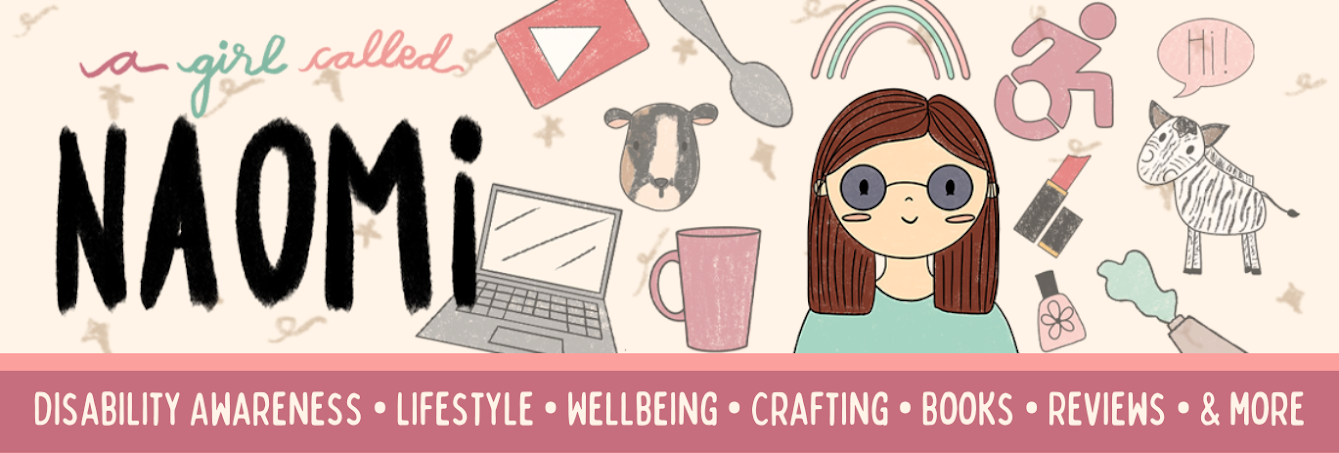You might have seen my post a few week back looking for volunteers with M.E. to share their 'The Real M.E.' story for The M.E. Show, a podcast supported by The M.E. Association.
The special edition of The M.E. show sharing Real M.E. stories was published this week. A link to it can be found ⇨ here.
I submitted my recording and just like my 5 minute video for Action for M.E. (a link to that blog article and video can be found ⇨ here) it was hard to sum M.E. up in just a couple of minutes.
It was amazing when I started to listen to the podcast to find that my story has been selected. I cried as I listened, hearing my story and that of others as I could relate so much. I could relate to the pain, the isolation, the shared symptoms and the difficulty in living with such an illness and the lack of understanding M.E. has.
My submission did get shortened but it summed up an typical day for me and the choices I have to make with the limited energy I have - at the end of this post I'll leave a copy of the transcript.
This week I've participated in two awareness raising opportunities and it's felt amazing to be able to share my story and help bring understanding of 'The Real M.E.'
The Real M.E.
I have my typical days which I talked about and I briefly mentioned my bad days. The days spent in bed in the dark and silence, riddled with pain and a multitude of other symptoms that I can do little about and too brain fogged to understand the most basic of things. To help distract me I listen to something on the lowest volume possible - usually a podcast, audiobook or film just to help distract me. Any sort of sensory stimulation makes the pain worse.Usually I can't predict those days; sometimes I can if I've done 'too much' the day before, like going to London for an appointment, but even 'too much' on a typical day can trigger a bad day or a series of bad days.
Often people don't understand why I need so much rest. Even just after getting dressed. People often assume that you're lazy or slacking off or not pushing yourself hard enough, but what they don't understand is the consequences of doing too much and that emphasis their belief that you're lazy.
M.E. is much more than feeling tired or feeling like you permanently have the flu. It's to complex to explain or understand until you live with it.
M.E. turns your life upside down, it leaves you isolated, depressed (by this I mean diagnosed clinical depression), vulnerable, dependant, struggling and fighting for the most basic of things (for example I currently have to pay for carers and I've been fighting to get funding but it's proving an almost impossible task).
Check out my #meandmyME posts each Sunday this month to learn more about well, me and my M.E.
Transcript:
“My day starts off with a bad night’s sleep. I wake up feeling more tired than when I went to bed. It usually takes me about an hour from waking up to getting out of bed. I then have a rest, have breakfast and then my medication. Then another rest before getting dressed.”
“I am usually dressed by midday. My afternoon is then spent between doing twenty-minutes of activity and ten-minute rests. On bad days I switch it around and do twenty-minutes of rest and ten-minutes of activity. I struggle to concentrate on things, so I switch between activities quite frequently.”
“I do things like, watch television, listen to podcasts or audiobooks, write letters, arts and crafts – anything to distract me from the symptoms that I am feeling, especially the pain. But sometimes I am too ‘brain-fogged’ and all I can do is lie in the darkness in the quiet of my bedroom and listen to something on the lowest volume possible.”
“Energy has to be used sparingly. You have to think a lot about what you will do with the energy that you have. Do you spend it on getting a wash or do you spend it on trying to distract yourself from the pain? It’s really difficult to decide what to do with the precious energy that you have – and the energy is precious because you have so little in reserve. You don’t have the bountiful energy that most other people without M.E. have.”
“A lot of plans get cancelled. I’m mostly housebound with M.E. which is very difficult. I’ve gone from a life of being at university studying to be a nurse, to being housebound, struggling to do the most basic tasks, reliant upon people to help me do simple things. This is The Real M.E.”


